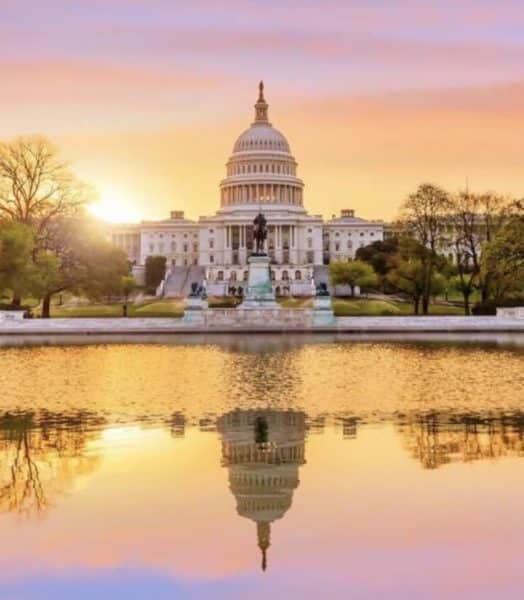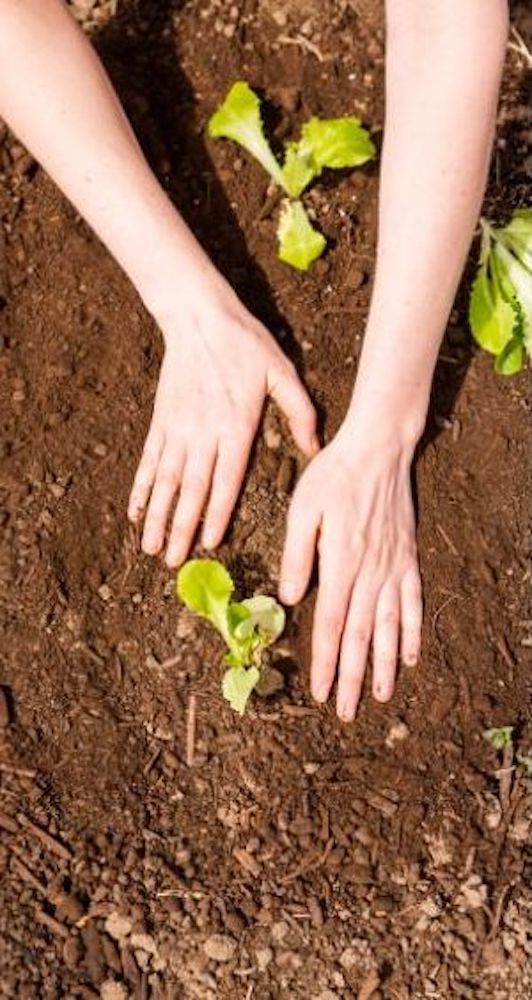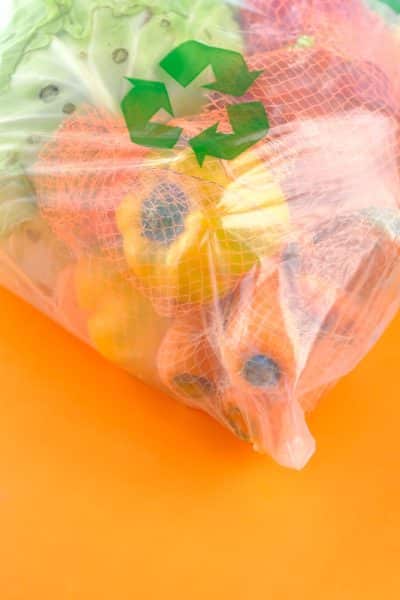Solutions
Solutions to plastic pollution exist.
Solutions to plastic pollution must take into account all stages of plastic’s existence, from production to use and disposal.
Solutions include the enactment and enforcement of strong policies and regenerative strategies that focus on plastic pollution prevention; a significant improvement in business practices; a shift in societal values and culture; and individual behavior changes. When implementing solutions, we must center and listen to voices from the frontline communities disproportionately harmed by plastic and the plastic and petrochemical industries, and other forms of pollution, colonization, and violence.
To achieve the world we need, we must ensure these solutions become widely adopted and systemic—that is, fundamental to the way human societies operate. For solutions to succeed, they must be non-toxic, just, equitable, and accessible to all people, everywhere. We are building, and rebuilding, systems that embrace plastic-free principles: refill, regenerate, repair, share, reuse, and refuse single-use.
What We Need
Enact and Enforce Healthy, Just Policies

Enact and Enforce Healthy, Just Policies
Plastic Pollution Coalition supports legislative and regulatory solutions that address the plastic pollution crisis at the source, reduce plastic production and use, center environmental justice, extend producer responsibility by holding corporations accountable, and create policies that support a regenerative circular society free of plastic pollution and its toxic impacts.
To ensure strong, effective, enforceable legislation is passed, it is important to stay aware of policies designed to to regulate plastics throughout their endless, toxic existence, such as the proposed Break Free From Plastic Pollution Act and the Protecting Communities from Plastics Act in the U.S., Europe’s enacted Single-Use Plastics Directive, the UN’s forthcoming Global Plastics Treaty, and the many local and national laws that now exist. Take action in your communities and political systems to support these policies.
We encourage policymakers and advocates to use the Global Plastic Laws Database to find new policy developments, cultivate effective regulations, and further strategize about how legislation can eliminate our global reliance on plastic and end plastic’s harmful impacts on people and the planet.
Improve Business Practices

Improve Business Practices
Plastic Pollution Coalition recognizes the important role businesses play in building a better future when they focus on improving their practices. We celebrate the work of our coalition’s business members, who are leading the way in reducing or eliminating entirely the use of plastics in their product offerings, packaging, and operations.
We strongly encourage businesses to adopt:
● Zero-waste facilities and systems, aiming to reduce generated waste wherever possible, and to divert 100% of industrial discards from landfills, incinerators, or the environment
● Refill and reuse strategies that eliminate the need for packaging altogether; you can find examples among Plastic Pollution Coalition’s Member Businesses
● A zero-waste commitment, which includes a dedication to a plastic-free culture, built into the overall company’s sustainability strategy
● Equitable community investment strategies to improve local economies and build environmental resilience
● Plastic-free and sustainable packaging when packaging is required; we along with our partners have made choosing simpler with the UP (Understanding Packaging) Scorecard
● Use of non-toxic, regenerative, and fairly acquired materials in any products they make
● Reusable and plastic-free alternatives during company meetings, events, and gatherings; learn how on our Plastic-Free Eateries page
● An active role in advocating for climate legislation in local, state and national arenas
Shift Societal Values and Culture

Shift Societal Values and Culture
We need to shift our culture away from one that normalizes disposability, violence, colonization, injustice, and pollution to one that celebrates and protects human life, and values sustainability and responsible stewardship of Earth. We can do this by changing what we value and taking action to show that we care more about people and nature than about accumulating (mostly plastic) stuff.
Life imitates art, and so art can be used as a powerful tool for shifting culture. Through the Flip the Script on Plastics initiative, Plastic Pollution Coalition is working to change the culture around single-use plastics in film, TV, and other media. Instead of portraying the unfortunate reality of excessive plastic use, films and TV shows can help change our society’s throwaway culture by modeling lives that embrace plastic-free principles. We encourage active, working members of the entertainment industry to commit to Flip the Script on Plastics by signing our pledge here.
Plastic Pollution Coalition works with a broad network of Artist Allies, Scientific Advisors, Youth Ambassadors, and other Notables who are leading the necessary shift in values and culture in society. Join Plastic Pollution Coalition in our mission to stop plastic pollution, and create a better world.
Additionally, our coalition member Plastic Free Campus has created a step-by-step program for eliminating single-use plastics from schools. Surfers Against Sewage has created two free accreditation programs, Plastic Free Schools and Plastic Free Communities, which are designed to lead your school or community through replacing single-use plastics with healthy, viable alternatives. Project O has established the Blue Cities Initiative, which offers certification to cities and counties committed to healthy waterways and oceans by addressing plastic pollution and other issues that also affect the ocean.
Change Individual Behaviors

Change Individual Behaviors
One of the first and most actionable solutions we can take is to embrace plastic-free principles in our own lives and communities—and keep advocating for broader systemic change.
To make the transition to a life with less plastic simpler, Plastic Pollution Coalition has created a variety of guides full of science-backed, inclusive, and actionable information. Check out our guides here.
Watch Out for False Solutions

Webinar: Greenwashing: Debunking the Plastic Industry’s False Narrative
Our April 19, 2023 webinar focused on the issue of “greenwashing” in the plastics industry—the epidemic of businesses falsely advertising products and initiatives as environmentally safe and friendly when they are not, masking real harm caused to the planet and people.
Watch Out for False Solutions
Corporations mostly recycle myths, messaging, and deceptive tactics—not plastic. The plastic and petrochemical industries’ perpetuation of recycling as a solution to the plastic crisis is one example of greenwashing. Greenwashing delays, distracts, and deflects from real, just, equitable solutions to the plastic pollution crisis.
Greenwashed false solutions only enable and support continued production of plastics—allowing the crisis to grow worse. And plastic pollution is growing, fast: by 2060, annual plastic production is expected to more than triple to 1.2 billion metric tonnes per year. To maximize your impact, it’s important to learn the distinctions between real and false solutions. Some helpful resources include:
- Outsmarting Greenwashing on Earth Day and Every Day (Plastic Pollution Coalition)
- Common Greenwashing Questions, Answered (Plastic Pollution Coalition)
- How to Recognize Plastic Pollution Greenwashing (Plastic Pollution Coalition)
- Greenwash.com (Changing Markets Foundation)
- Plastic Solutions Review (Break Free From Plastic)
- Greenwashing Guide for Journalists (Plastic Pollution Coalition & Break Free From Plastic)
Plastic Pollution Coalition Member Businesses are expected to avoid marketing or practicing the following false solutions:
- Announced-then-nothing projects, including pilot projects for green marketing material
- “Chemical” or “advanced” recycling (plastic-to-fuel: gasification, pyrolysis, and plasma arc)
- Bioplastics, biodegradable and compostable plastics, and “oxo-degradable” plastics
- Downcycling and incineration
- False narratives that champion individual behavior changes or recycling
- Plastic neutrality and offsetting

Words of Encouragement
Every day we are faced with news of climate change, the global plastics crisis, depletion of the rainforest, economic injustice, war, and more. With so many imminent threats to our environment and world happening all at once, it’s easy to feel overwhelmed. But there are solutions and there is hope! For words of encouragement, we recommend watching our webinar “The Power of Service: Moving from Anxiety to Action for the Planet.”
Global awareness of the plastic pollution crisis and solutions to address it are growing! We applaud initiatives to encourage continued positive efforts to build a better world and end plastic pollution, such as The Earthshot Prize and Blue Sky Scriptwriting Competition. And we are deeply inspired by the work of our diverse members and allies.
Together, we are creating a more just, equitable, regenerative world free of plastic pollution and its toxic impacts. Join us.